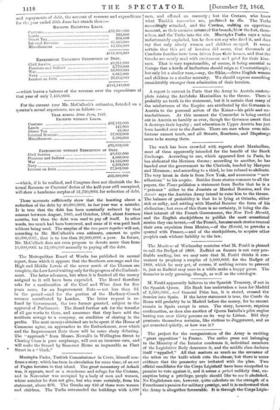Mustapha Pasha, Turkish Commissioner in Crete, himself con- firms watery,
which has been in circulation for some time, of an act of Pagan heroism in that island. The great monastery of Arkadi was, it appears, used as a storehouse and refuge for the Cretans, and in November was occupied by a body of men and women, whbee number he dote net ghee, but who were eerteinly,•frdm 'his statement, above'600. The 'flieeks say 450 of were women and children. The Turks surrounded the buildings With 4,000
men, and offered an amnesty ; but the Cretans, who know what Turkish amnesties are, preferred- id die. The Turks eiccordingly attacked, and -the Creleens, Wafting an opportune moment, as their enemies nitenited 'the breacletlew the fort, them- selves, and the Turks into the' air. ailustapha-Paeha says a mine unfortunately exploded, but he doe's not say'who fired it, and does fay that only ninety women and children escaped. It seems certain that this act of heroism did occur, that thousands of Candiote families have been driven from their homes, and that the Greeks are nearly mad with excitement and grief for their kins- men. That is very reprehensible, of course, it being essential to Europe that a horde of barbarians should reign at Constantinople ; but only let a similar race,—say, the Sikhs,—drive English women and children to a similar necessity. We should express something considerably stronger than admiration of their heroism.


































 Previous page
Previous page